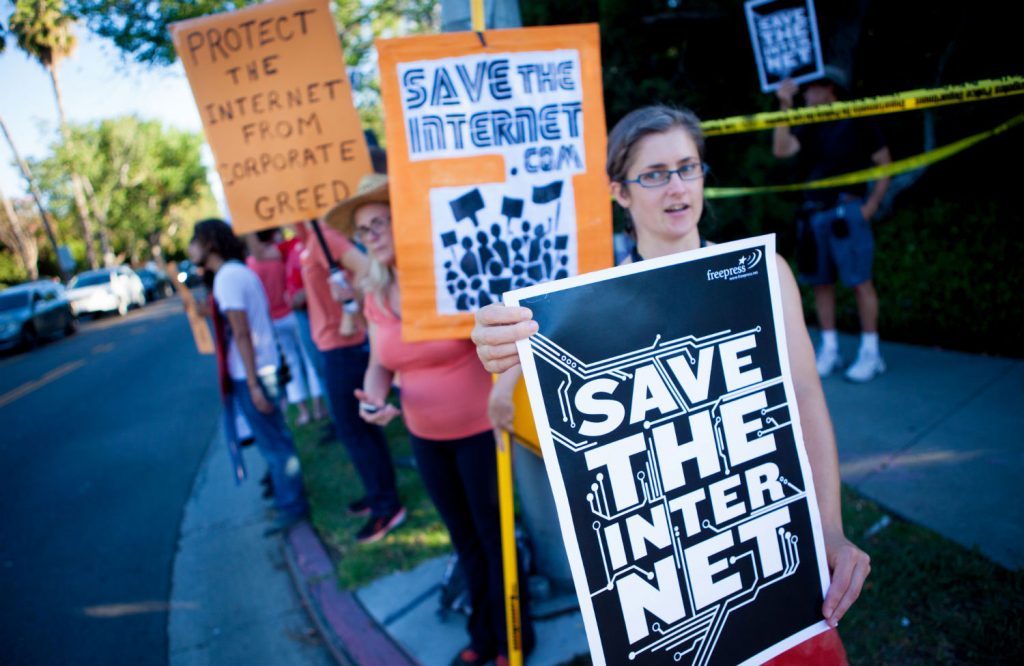Comcast, AT&T, and Verizon released statements saying they don’t plan to sell consumers Internet data. The events sparked after Congress’ decision to reverse a Federal Communications Commission (FCC) privacy rule.
With the reversal, Internet Service Providers (ISPs) would be able to sell customers information such as visited websites, used apps, search histories, content on emails and health and financial data without the consumer’s permission. The Senate passed the resolution and now it is waiting for President Trump’s signature. The FCC rule was approved in October 2016, and it was designed to prevent Internet providers from sharing their subscriber’s information.

The law passed by the vote of Republican lawmakers. They said that the decision was important to support consumer choice and free markets.
“The consequences of passing this resolution are clear: broadband providers like AT&T, Comcast, and others will be able to sell your personal information to the highest bidder without your permission,” said Democratic Representative Anna Eshoo, according to The Verge.
The Representative added that if the resolution passed, no one would be able to protect consumers, not even the Federal Trade Commission.
Comcast, AT&T, and Verizon state that they will not sell users’ information
People are enraged with the new law that will allow ISPs to sell their browsing histories, and major ISPs are attempting to calm customers by saying they have no intention of selling their personal information. However, AT&T, Comcast, and Verizon officials lobbied for the reversal of FCC privacy rules, and they have made significant donations to Republican representatives that pushed for the law.
Comcast posted a statement on its website, claiming that it has no intentions to sell the information.
“At Comcast, we respect and protect our customer’s personal information. Always have, always will. We do not sell our broadband customers’ individual web browsing history. We did not do it before the FCC’s rules were adopted, and we have no plans to do so,” wrote Gerard Lewis, Senior Vice President in public policy.
Lewis added that they were committed to safeguarding the customers’ sensitive information like banking, children’s and health information and that if they used any of that information, it was after receiving an affirmative opt-in consent from customers.
Lewis affirms that misleading information has been hovering around following the reversal law, and maintains that Comcast is not planning to sell sensitive information. He even said that consumers have the ability to opt out of receiving targeted ads sent to them using the non-sensitive data recovered from browsing stories.

AT&T published a statement addressing the issue too. AT&T executive Bob Quinn wrote the report, which offers a different approach to the situation. Quinn pinpoints operating system providers, web browsers, search engines and social media platforms for collecting sensitive information from consumers. He believes that the FCC never did anything to regulate those platforms from accessing users’ information, and the ISPs have been the only ones affected by their laws.
“If the government believes that location data is sensitive and requires more explicit consumer disclosures and permissions, then those protections should apply to all players that have access to location data, whether and ISP or edge player or search engine,” wrote Quinn in the statement.
The AT&T executive added that if the government were able to ban ISPs from accessing that data but allowed OS providers, app developers and such to use, share or sell the data, then consumers wouldn’t be protected from the actions, they’d be confused.
Quinn said that AT&T’s privacy protection policies -which claim that consumers’ personal information is not for sale- have not changed and that the Congress’ law had no effect on those principles.
Verizon Chief privacy officer, Karen Zacharia, wrote a similar statement. She stated that Verizon does not sell the personal web browsing history of their customers. She explained that Verizon has two programs that use web browsing data, and neither of the programs involves selling customers’ browsing histories.
https://youtu.be/NtpKfTuw7sY
Reversal law awaits President Trump’s signature
According to The Verge, Internet providers believe that the repeal bill will place them in the same level of information that companies like Facebook or Google have. However, search engines and social media platforms can’t review consumers’ personal browsing histories; they merely see what users click on the platforms and use that information to provide ads related to their likes. ISPs and Republicans that voted for the law complained that the FCC’s rules did not align with the Federal Trade Commission’s privacy framework.
The vote for the reversal law was close as 215 Representatives voted in favor, and 205 voted against. President Donald Trump is expected to sign the repeal legislation soon, and 46 Senate Democrats urged the President not to sign the bill, as they claim that most Americans believe that their private information should be just for them.
Source: Huffington Post

This is -bad- reporting. The telecoms said, “…no plan to” sell data, not that they “won’t ever sell your private data. These weasels could -easily- change their mind tomorrow, or next week, or whenever they feel like it. Pure empty, meaningless PR.